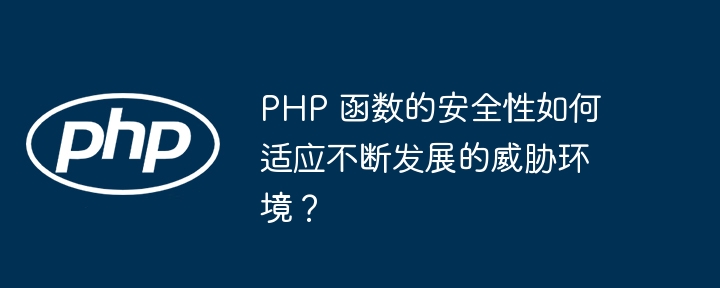
Improving PHP function security: Responding to evolving cyber threats. PHP provides type hints, data filtering, output escaping, and error handling to enhance function safety. Best practices include using the latest PHP version, avoiding unsafe functions, validating results, and updating your application regularly. For example, you can prevent injection and XSS attacks by filtering and escaping user input using the filter_input and htmlspecialchars functions.

Security of PHP Functions: Responding to the Changing Threat Environment
As cybersecurity threats continue to evolve, protecting the web Application security is critical. As a widely used server-side language, the security of PHP's functions is crucial to maintaining the integrity of the application.
Enhanced Security Features
PHP introduces a variety of features to improve function security, including:
filter_input()function, which can filter and validate user input to prevent malicious code injection.htmlspecialchars()andjson_encode()Functions such as escaping characters to prevent cross-site scripting (XSS) attacks .Best Practices
In addition to the built-in security features, there are many best practices that can improve the security of PHP functions:
eval()andsystem()) execute code dynamically, thus Bring huge security risks.Practical case
In order to illustrate the security of PHP functions, here is an example that needs to filter user input:
Copy after login
Conclusion
The security of PHP functions can be significantly improved by using PHP's built-in security features and implementing best practices. Understanding the evolving threat landscape and regularly updating your applications is critical to protecting your web applications from attacks.
The above is the detailed content of How does the security of PHP functions adapt to the evolving threat landscape?. For more information, please follow other related articles on the PHP Chinese website!